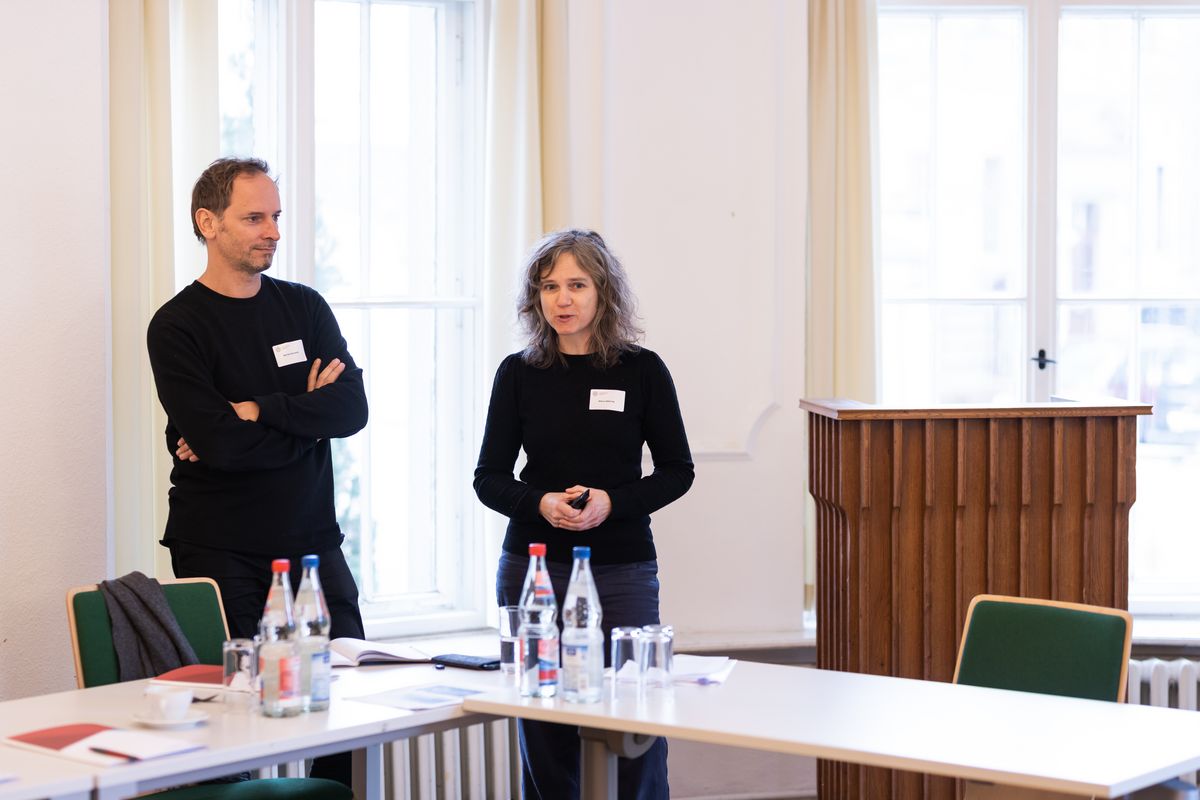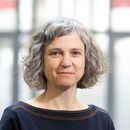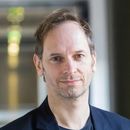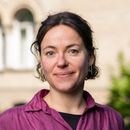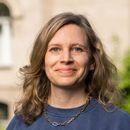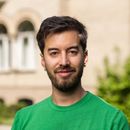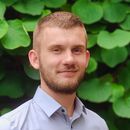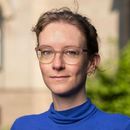The Global Health research group investigates health and illness as historically changeable phenomena from a global and transregional perspective, using methods from sociology, anthropology, and history.
Involved disciplines: comparative cultural and social history, cultural sociology, social and cultural anthropology.
About the working group
We are an interdisciplinary team of historians, sociologists and anthropologists who research ideas and experiences of health, illness, and bodies as global phenomena, focusing in particular on transregional entanglements. We examine these topics from a synchronous and diachronic comparative perspective. This means that we view health and illness as variable and changeable concepts that are closely linked to their respective social, cultural and political contexts and at the same time are constantly changing through transfer and circulation processes. Furthermore, we incorporate the observation that notions of health, illness and healing in popular and scientific discourses are increasingly subject to the dynamics of blurring boundaries. When we talk about health, we are therefore not just talking about a “normality” that is to be established through healing practices. Rather, we take a broader view and examine practices that are aimed at the well-being and self-optimization of body and mind. In order to explore this broad range of topics, we address current issues such as quarantine practices, vaccine production in the context of the coronavirus pandemic, the global increase in non-communicable diseases (NCDs) and the field of “Planetary Health”.
Research interest of the working group
The main interest of our working group focuses on the societal dimensions of illness and health: We ask how different actors worldwide take up, co-produce, appropriate or reject discourses relevant to health and the body. Our aim is to understand what role these discourses and practices play in shaping social and global orders, how they shape ideas of belonging and how they give people a certain understanding of their relation to themselves and the world. It is important to address these questions in order to be able to reflect on health policy interventions in a context-sensitive manner and to be able to address social inequalities (not only) in the field of healthcare.
In doing so, we are pursuing two focal points: Firstly, we ask about the connection between health discourses and processes of subjectification and responsibilization. The way in which subjects are addressed in the context of health discourses and made individually (self-)responsible (responsibilization) not only reveals power relations and structures of inequality (and reverberates back onto them), but also has a direct influence on health policy campaigns, on prevention and therapy concepts and on the interplay between biomedical discourses and social processes.
Secondly, we pay particular attention to the aspect of spatialization: health discourses are spatially structured and create spaces, both on a local and global level. In this context, we examine, for example, quarantine and isolation practices or transregional cooperation as phenomena that create new spaces and at the same time interact with other spatial ordering systems such as racialized segregation or globalization processes.
On the basis of this research agenda, the “Global Health” working group is expanding health-related research at Leipzig University to include a transregional and global perspective on the one hand, and on the other, it is also setting a new and promising accent in the profile area of “Global Interdependencies and Comparisons” and in the “Global Health” profile area at the Research Centre Global Dynamics (ReCentGlobe).
Research approach
The central questions of the working group are investigated in different but thematically interlinked research projects. Various methods such as qualitative interviews, archival research and theory-based spatial analyses are used.
The „Pandemic Space“ research project examines phenomena that have recently become the focus of public attention in the context of the COVID-19 pandemic: quarantine measures and “social distancing” decisively change spaces and perceptions of space and are embedded in discourses about taking responsibility for oneself and the collective. The project asks how quarantine measures shape public space and the social order in the long term. With a geographical focus on South Africa and the USA, it examines how quarantine knowledge and practices have developed and are changing historically and in the present – from the “Spanish Flu” to COVID-19. Particular attention is paid to the transregional circulation of quarantine knowledge and practices on the one hand and the interactions between quarantine and racialized segregation as two interwoven spatial patterns of order on the other.
The planned scientific network “Planetary Health – Planetary Thinking in the Social Sciences and Humanities” aims to critically analyze the emergence of “Planetary Health” on research agendas. This relatively new field of inquiry emerged in response to current global environmental crises (such as climate change impacts, pandemics and other ecosystem threats) and in response to the challenge of rethinking global health from the perspective of its intimate connection with ecosystem health. The main goal of the network is to pave the way for an “interdisciplinary planetary thinking” by, on the one hand, historicizing and critiquing the narratives of planetary health. On the other hand, we want to address the methodological challenges for historical and anthropological research, for example how the social sciences and humanities can fruitfully use and adapt scientific data and different forms of knowledge about planetary health.
Duration
2020 – 2025
Our Projects
Toxic Legacies of the mid-20 Century Model Malaria Control Programme in Pare valley
This project examines the aftermath of a large-scale, mid-20th century, model disease control program against malaria that was implemented and scientifically studied between the 1950s and 70s, in the Pare-Taveta area in Tanzania. This program implied high-intensity indoor house spraying with potent insecticides, as well as the establishment of a local workforce and infrastructure for this endeavor, and to scientifically evaluate its long-term impact. While the experimental program initially was highly effective in countering malaria, the disease returned after it ended, and since the 1980s, no further interventions or research have been conducted in the area. The overarching question pursued by this project is how the remains of this program –pesticide residuals and their effects on health and ecology, but also intangible memories,narratives and local debates, and tangible architectures and apparatus, settlement patterns, landuse and landscapes – endure into the present, shaping contemporary life, health and disease.
The project aim is to trace the remains of insecticide-based disease control (IBDC) in northern Tanzania, focusing on insecticidal infrastructures and landscape, local witnesses and their memories, and chemical residuals in bodies and ecologies, and problems of their (in)visibility and toxicity. What material and immaterial remains of the malaria eradication scheme can be found today? What do local residents remember, and what visible traces are left in the landscape? What chemical residuals and long-term ecological effects might remain, half a century after the experiment? How might such chemicals affect human and nonhuman life? What concerns do they raise among local people and health professionals, and what, if any, is the evidence of their effects? How could they be detected and measured with local evidentiary infrastructures, and how can populations be protected?
Based on archival work at NIMR Amani Research Centre and thorough reviews of older literature, the project’s approach is ethnographic, starting from observations in the present, in the institutions that implemented the experimental program, and among people – professionals and local residents – that were and are affected by it. Conversations and interviews elicit memories of insecticide deployment and its intended and unintended effects, and explore local debates, among citizens and experts, about links between the program, and its effects (including negative effects such as cancer). As an innovative, engaged ethnographic method, the anthropologists collaborate with Tanzanian toxicologists to pursue documentation of chemical residuals in locally sampled biota. While this toxicological work will inevitably be preliminary, its added value lies in creating a space for cooperation with scientists and other local stakeholders, about the past, about toxicity and health, and about the present and future use of potent insecticides in disease control.
Funding: French Embassy TANZANIA
Duration: since 2022
Research Team: Prof. Wenzel Paul Geissler, Dr. Peter Mangesho, Dr. Vera Ngowi, Dr. Moritz Hunsmann, Prof. Ruth Jane Prince, Dr. Jones Kapeleka, Dr. Caroline Meier zu Biesen. Dr. Anitha Tingira, Mohamed Seif, Lulu Tessua
Collaborating Institutions: University of Dar es Salaam, University of Oslo, University of Leipzig, Muhimbili University, National Institute for Medical Research (NIMR), Tropical Pesticides Research Institute (TPRI)
This research project examines how after decades of “social modernization”, structural adjustment programs (SAPs), and political repression of traditional healing practices, the African state Zanzibar now advocates for greater integration of traditional healers in public health care. The project considers two major political events that triggered recent transformations of the traditional medicine sector: (1) Ministry of Health’s legally established standards for traditional therapeutic practices, which apply under the “Traditional and Alternative Medicine Policy Act”; (2) attempts by the NGO “World Doctors” to assist Zanzibarian healers in performing their activities in accordance with governmental legislation. The NGO established institutional agreements with the Health Ministry to promote new forms of collaboration between the islands’ traditional and biomedical health care sectors. The project investigates how current political efforts to formalize traditional medicine transforms the role of healers and their relationship to structures of governance. It builds on anthropological research on boundary work, in particular on theoretical approaches to the problem of boundedness and flow in cultures of healing. Taking into account historical patterns of healing authority, the project furthermore explores traditional medicine within the theoretical concept of the “strategic resource”. Finally, the project analyzes how the mobilization of healers translates into medical practice, especially as a way to improve the management of non-communicable diseases (NCDs, here: diabetes/hypertension).
The most recent research phase further analyzed health-related situations of action as assemblages of health actors (especially healers), knowledges, resources, infrastructures, and policies, all moving across multiple scales. The research focuses on how these assemblages become contextually relevant, how they (potentially) produce novel medical conditions and, hence, how they shape the health of people in this island society. Specifically, the project explores how NCDs are connected not only with social, economic, and political conditions, but also with the biopolitics of disease categorization, epidemiological imaginaries, and a growing concern for environmental toxification. Incorporating planetary and environmental changes to human bodies into this assemblage broadens the theoretical scope of what constitutes health, wellbeing, illness, and (ethics of) care. Contemporary anthropology work on epidemiological change and chronic disease in Africa, scholarly work on “metabolic living” grounded in the framework of “absorption” (i.e., a relational process that makes connections between ingestion, absorbing substances, bodily systems, and toxic exposures), guide my research and offer – in contrast to bounded entities – a thicker description of how people live through and make sense of NCDs.
Funding: Deutsche Forschungsgemeinschaft (DFG)
Duration: 2017-2019 (first project phase); 2022-2023 (second project phase)
Project Manager: Dr. Caroline Meier zu Biesen
A Habilitation Project
The project focuses on the history of the calorie, tracing the food calorie from transatlantic nutrition research to numerous policies and practices in the US. Challenging the assumption that calories were solely about food, the project explores the ways in which the calorie became significant far beyond the realm of diet and nutrition. Indeed, it provided a scientifically sanctioned, ostensibly neutral framework for discussing class, gender, and race relations, as well as citizenship and modernity. Calorie counting gained momentum in fields as diverse as food reform, institutional management, education and social work, global food aid, consumer engineering, and weight-loss diets – repeatedly providing a site for the negotiation of gender and difference, class mobility, and white supremacy. The project also highlights the ways in which the calorie produced knowledge about bodies and diets, created nutritional programs and policies, and shaped the agency and self-understanding of diverse individuals.
Habilitation Project Project Investigator: Dr. Nina Mackert
In a Nutshell
Everything at a glance: We answer the most important questions about our working group
The working group is made up of researchers from the Chair of Comparative Cultural and Social History of Modern Europe (18th – 21st century), the Chair of Transregional Sociology and the Research Centre Global Dynamics.
The working group investigates historically changing notions of health, illness and bodies and their biosocial environments. Our aim is to explain how health-related discourses and practices shape social and spatial orders and how the social treatment of diseases changes – for example through the use of space-related techniques (such as quarantine) or body-invasive technologies (such as vaccinations).
We work on the basis of concepts theorizing body and space as well as discourse analysis, primarily using historical methods and qualitative social research approaches. In doing so, we pursue global comparisons and the analysis of transregional entanglements.
- Nkululeko Nkuomo is a social scientist in the Department of Psychology at the University of the Witwatersrand, Johannesburg, South Africa. He worked as a fellow in the working group Global Health from September to November 2022. He is particularly interested in contemporary sociological theories and conducts research in the fields of body sociology and public health. During the fellowship, he was working on a project on racialized health spaces in South Africa, thereby cooperating closely with the DFG-project on Pandemic Space.
- Dr Stefan Höhne is a cultural historian at the KWI - Institute for Advanced Study in the Humanities, Essen. Germany. From October to December 2020 he worked as a fellow in the working group Global Health. His research focuses on Science and Technology Studies, History and Theory of urbanizstion and everyday life, and modern history of health and well-tempered environments. During the fellowship, he was writing a research paper on urban public health.































































